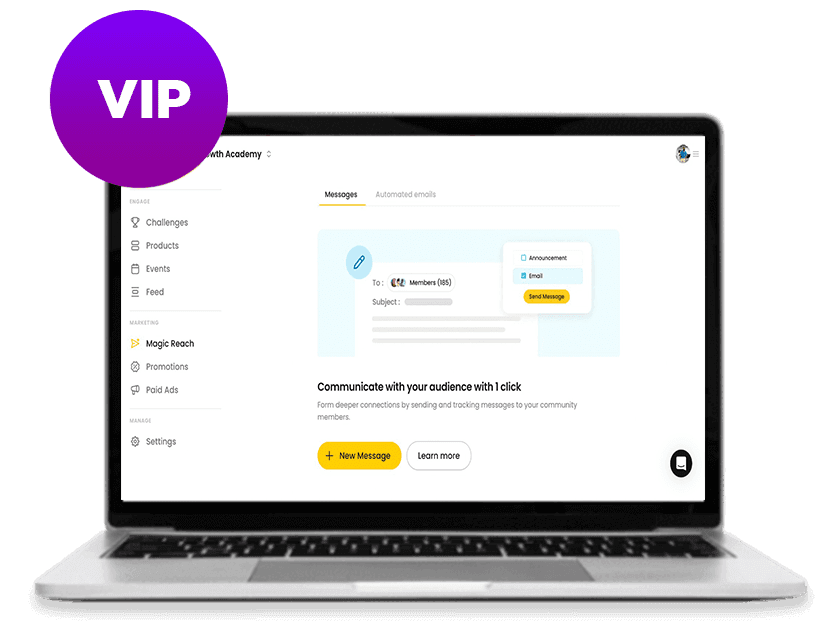Digital Marketing Mastery
Get a High-Paying Job, Grow Your Business, or Start a Freelancing Career! Even if you're new to digital marketing, this course covers everything—Facebook & Instagram Ads, SEO, Google Ads, and more. With 150 hours of content, weekly live sessions, and monthly 1-to-1 guidance, you'll never need another digital marketing course.
🎯100% Job Assurance or 100% Money-Back Guarantee!
📣 Mega Sale: 50% + Extra 20% Off
Attend My Free Digital Marketing WebinarRated 4.9/5⭐ on Google
Mentor: Rohith Sasanken
Founder - Performance Growth Academy
- ✅ Managed over ₹100 Cr in Ad Spends
- ✅ 10+ Years of Industry Experience
- ✅ Worked with 300+ Clients
- ✅ Expert in Scaling Businesses through Data-Driven Strategies
- ✅ Trained 5000+ Students in Digital Marketing
Master Digital Marketing Across Leading Industries! 100% Job Assurance or Money-Back Guarantee!
Become an industry-focused digital marketing expert with our Digital Marketing Mastery course! Whether your goal is to land a high-paying job, grow your business, or start freelancing, this course provides you with specialized training in top industries like SAAS, FMCG, Real Estate, Retail, Healthcare, Education, Food, and more. You'll create and implement powerful strategies tailored to each industry, ensuring you're prepared for real-world marketing challenges.
Not only that, but you'll also learn how to build successful online businesses through Dropshipping, Affiliate Marketing, and Print On Demand, turning your skills into profitable ventures.
With 150 hours of content, weekly live sessions, and monthly 1-to-1 sessions, you'll gain the skills and confidence to excel in digital marketing. Plus, enjoy 100% Job Assurance or your money back if you don't secure a job.
Enroll now for just ₹9999 (Actual Price ₹19999) during our Mega Sale! Take control of your future in digital marketing today.
Who should enroll for this course
- Marketers

- Business Owners

- Agency Owners

- Social Media Marketers

- Freelancers

- E-Com Founders

- Professionals

- Freshers

Digital Marketing is one of the Highest Paying Jobs in 2024. This course will prepare you to Get a High-Paying Job, get Freelance Clients, Grow Your Business or Start Your E-commerce Business
Digital Marketing is one of the
Highest Paying Digital
Skills in 2024.
This course will prepare you to get a high-paying job, acquire freelance clients, or grow your business.
Get it now for ₹9999 (Actual Price ₹19999)




Social Media Marketing Course Curriculum
Learn Beginner-to-Advanced Level Social Media Marketing with 70+ video lessons
SEO Curriculum
Learn Beginner-to-Advanced Level Search Engine Optimisation with 100+ video lessons
Google Ads Curriculum
Learn Beginner-to-Advanced Level Google Ads
Content Marketing Curriculum
Learn Beginner-to-Advanced Level Content Marketing
Dropshipping Curriculum
Learn Beginner-to-Advanced Level Dropshipping
Print On Demand Curriculum
Learn Beginner-to-Advanced Level Print On Demand
Affiliate Marketing Curriculum
Learn Beginner-to-Advanced Level Print On Demand
Digital Marketing Strategy Building Curriculum
Learn Beginner-to-Advanced Level PrDigital Marketing Strategy Building
Sales Pitching and Cold Calling Curriculum
Learn Beginner-to-Advanced Level PrDigital Marketing Strategy Building
Why learn Digital Marketing in 2024?
- High demand for digital skills.
- Cost-effective marketing solutions.
- Flexible career opportunities.
- Trackable and measurable results.
- Continuous learning and growth.
- Reach global audiences easily.
Meet Your Mentor

Rohith Sasankan
Founder – Young Urban Project
- Managed over ₹100 Cr in Ad Spends
- 10+ Years of Industry Experience
- Worked with 300+ Clients
- Expert in Scaling Businesses through Data-Driven Strategies
- Trained 5000+ Students in Digital Marketing
Get Certified
Complete all modules successfully and receive an Advanced certificate. This certificate is:
- Official & Verified by Rohith Sasanken
- 9+ Google Certifications,Hubspot Certification
- Useful to enhance professional credibility

Hear what 4,000+ students have
to say about our course 😊 →

Get Support Anytime.Lifetime.
You are not alone in your learning journey. If you get stuck anywhere in the course, just ask for help in our Private Community anytime. And you will get help!
- VIP Group for our learners
- TOP industry professionals
- Queries answered by PGA Team and community
Learn the inside out of Digital Marketing with our Digital Marketing Mentorship Program!
Get Instant AccessFrequently Asked Questions
- Digital Marketing FAQs
- Digital Marketing Course Benefits
- Digital Marketing Growth and Scope
- Q: What is Digital Marketing, and why should I learn it?
Digital marketing is the art of promoting products, services, or brands through online platforms like social media, Google, and websites. It’s everywhere—from the ads you see on Instagram to the search results on Google. Learning digital marketing opens doors to exciting career opportunities, whether you want to work for a big company, start your own business, or freelance. It’s a skill set in high demand as businesses around the world move online!
- Q: Do I need any prior experience or a specific degree to learn Digital Marketing?
Not at all! You don’t need any previous experience or a specific degree to start learning digital marketing. Our courses are designed to guide you step-by-step, from the basics to more advanced strategies. Whether you're a complete beginner or have some knowledge, you'll find everything you need to master the subject. Passion and a willingness to learn are the only prerequisites!
- Q: What kind of jobs can I get after learning Digital Marketing?
The job opportunities in digital marketing are endless! You could become a Social Media Manager, SEO Specialist, Google Ads Expert, Content Marketer, or even start your own online business. Companies of all sizes—startups, global brands, and agencies—are always on the lookout for digital marketing experts. Plus, you can freelance or offer your skills as a consultant. The digital world is growing, and so are the opportunities!
Start your success journey &
become a master at Digital
Markeing
Get Instant AccessLimited time offer. Enroll now before price increases.









